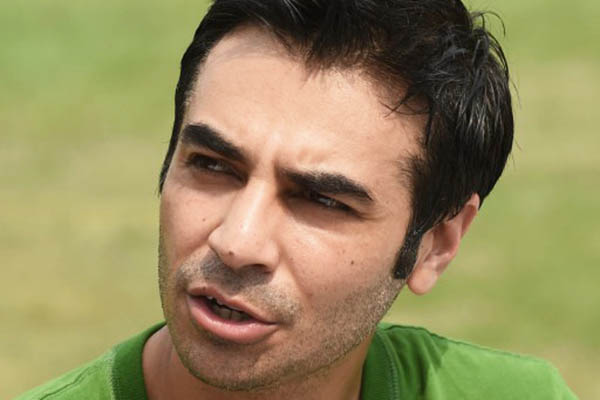
Arif Ali—AFP
Cricketer banned over spot-fixing conviction says he is working to regain his place in the national team
Salman Butt clearly remembers the way he was dismissed against Sri Lanka in Lahore in 2009—the last batsman out in the last Test in Pakistan, before a terror attack on the visiting team’s bus scared off touring sides.
Butt, now 32, was run out in the last over of the day for 48. The next morning, on March 3, militants ambushed the Sri Lankan bus, killing eight people and wounding seven Sri Lankan players and staff. Eight years on, and with a conviction for spot-fixing behind him, Butt is hoping for a new era for Pakistani cricket, starting with next week’s visit of a World XI to play at Lahore’s Gaddafi Stadium.
“I remember that Test vividly because on day two we were replying to a 600-plus Sri Lankan total and I had a good opening partnership of 110 with Khurram Manzoor but in the last over of the day I was run out for 48 in a disappointing manner,” said Butt. “The next day we had to continue our innings so in the morning we set off from the hotel for play but after a few minutes the bus changed its route and we returned to the hotel. Later we were told about the incident, that was really shocking. Those events changed the whole scene of Pakistan cricket and the isolation has impacted a great deal with both players and fans deprived of international cricket, but I hope the efforts of the PCB and improved security will end this isolation.”
Pakistan have not hosted international cricket—barring a short limited-overs series against Zimbabwe in 2015—since that day. But hopes are rising that Pakistan’s isolation is nearing its end as security continues to improve in the strife-hit nation.
“Those were heartbreaking circumstances,” said Butt. “It’s a wonderful feeling when you play before your home crowd and Pakistan’s crowds stand out in top three in the world, so finally it’s coming back and everyone is happy.”
Former Zimbabwe batsman and ex-England coach Andy Flower has assembled a World XI with players from seven countries led by South African skipper Faf du Plessis, with all three matches set to take place in Lahore. The Pakistan Cricket Board (PCB) hopes the series will go off without a hitch as the country prepares to host Sri Lanka for one Twenty20 international next month and another three T20s against the West Indies in November.
Butt says the fans have been the real losers, deprived of watching top-tier cricket on their home soil. “The fans of this generation could not see their stars before their eyes and it impeded their progress,” said Butt, who led Pakistan at a neutral-venue series against Australia in 2010.
Following the attack, Pakistan was forced to play its home matches in United Arab Emirates, leaving a generation of players like Asad Shafiq, Ahmed Shehzad, Umar Akmal and Azhar Ali without the experience of competing in a home Test match. That also prevented Pakistan’s most successful captain, Misbah-ul-Haq from captaining in a Test on home soil.
With cricket set for a return to Pakistan, Butt is also hoping to mount his own comeback, with selectors considering him for future Tests.
In 2010 Butt’s career was almost destroyed when he was hit with a five-year ban and prison sentence, along with pace bowlers Mohammad Asif and Mohammad Amir, for deliberately bowling no-balls as a part of a spot-fixing sting in the Lord’s Test against England.
“I have overcome that bad phase and now doing my best in domestic matches to regain my place in the Pakistan team,” said Butt. “I have full faith in my abilities and hard work and hope my sufferings also end sooner than later.”
